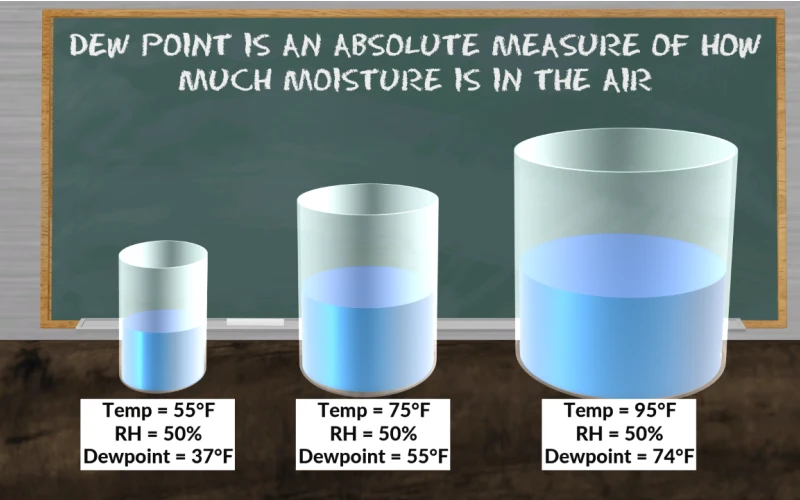
# High Dew Point Impact on Human Comfort
Understanding Dew Point and Its Significance
The dew point is the temperature at which air becomes saturated with water vapor, leading to condensation. When we talk about a high dew point, we’re referring to conditions where the air contains a significant amount of moisture. This meteorological measurement is more accurate than relative humidity for assessing human comfort because it directly indicates how much moisture is in the air.
How High Dew Point Affects Human Comfort
When the dew point rises above 60°F (15.5°C), most people begin to notice increased discomfort. As it climbs higher, the effects become more pronounced:
- At 65-70°F (18-21°C): The air feels noticeably humid
- At 70-75°F (21-24°C): The air feels oppressive and sticky
- Above 75°F (24°C): Conditions become extremely uncomfortable and potentially dangerous
Physiological Effects
High dew points impair the body’s natural cooling mechanism. Normally, sweat evaporates from our skin, carrying away heat. But when the air is already saturated with moisture (high dew point), evaporation slows dramatically. This leads to:
- Increased core body temperature
- Elevated heart rate as the cardiovascular system works harder
- Potential heat exhaustion or heat stroke in extreme cases
Practical Implications of High Dew Point Conditions
Daily Activities
High dew point conditions make even simple activities more challenging. Walking, gardening, or playing sports become exhausting more quickly. Many people report feeling lethargic and less motivated to engage in physical activities during periods of high dew points.
Sleep Quality
Sleep becomes particularly difficult when dew points remain high overnight. The body struggles to cool down, leading to restless sleep and frequent waking. This can result in daytime fatigue and decreased productivity.
Mitigating the Effects of High Dew Point
While we can’t control outdoor conditions, several strategies can help maintain comfort:
- Use air conditioning to lower both temperature and humidity
- Employ dehumidifiers in particularly damp areas
- Wear moisture-wicking, breathable clothing
- Stay hydrated to support the body’s cooling efforts
- Schedule strenuous activities for cooler parts of the day
Conclusion
High dew point conditions significantly impact human comfort and health by interfering with our natural cooling processes. By understanding these effects and implementing appropriate strategies, we can better cope with humid conditions and maintain our well-being during periods of elevated atmospheric moisture.
Keyword: high dew point
